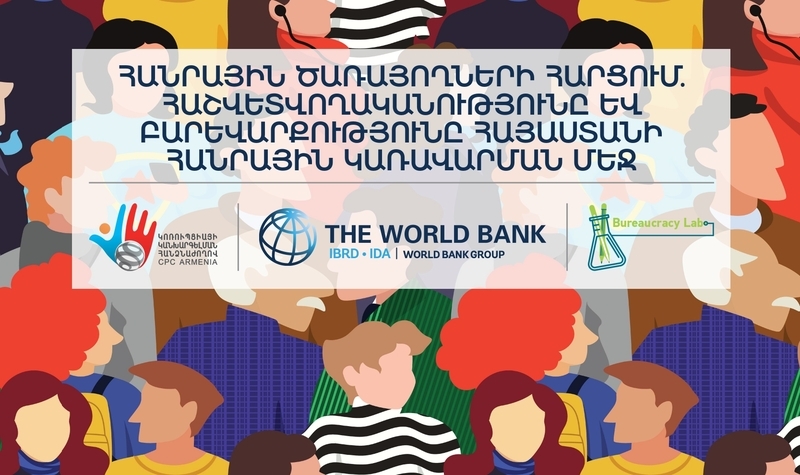Armenia Launches the Public Sector Accountability Assessment Project

The World Bank is conducting a public sector accountability assessment - a survey of public servants.
The purpose of Armenia’s public sector survey is to support the Corruption Prevention Commission and other government agencies in the comprehensive assessment of causes, patterns and consequences of corruption in Armenia’s public administration sector. The survey is led by the Corruption Prevention Commission with the support of the World Bank.
The survey of public servants is conducted within the framework of cooperation between the Commission and the World Bank in the areas of anticorruption and justice. The survey is expected to help and inform the future planning of anticorruption initiatives of the Government of Armenia. The objective of this work is to help the Commission and the Government of Armenia by providing insights into the drivers of integrity risks, to observe the impact of weak accountability systems on performance and plan reforms addressing and balancing weak integrity practices in the public sector.
The survey is anonymous, voluntary and confidential. Data will be collected and analyzed independently by the team of the World Bank’s Bureaucracy Lab which has coordinated similar studies in over 35 countries.
The survey is aimed at public servants in Armenia’s selected government institutions, including ministries and agencies, as well as representatives of regional authorities.
The survey will cover the three areas presented below:
1) Staff recruitment and management, performance appraisal, and performance related bonuses;
2) Perception of corruption, social norms, accountability and transparency and grievance redress mechanisms;
3) Procurement, financial management and project implementation.
Data received through the survey among public servants will be maintained in accordance with the World Bank personal data privacy policy. Responses are fully confidential, and no one outside of the research team will be able to track individual responses. The responses will be individual, and public servants invited to participate in the survey should personally complete the survey and be impartial. Aggregated data and findings will be published and will be completely anonymous.